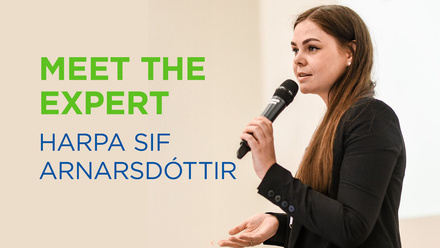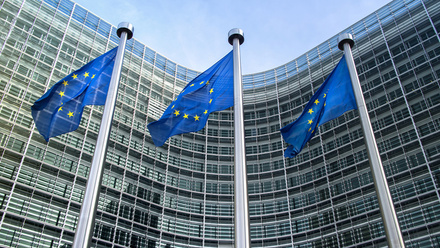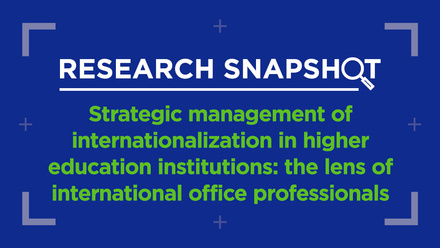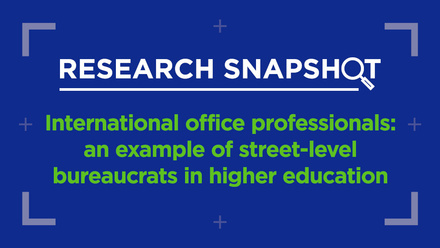Erasmus Without Paper: when can I start?

Erasmus Without Paper is coming! The Mobility Advising Expert Community Feature Session at the 31st Annual EAIE Conference and Exhibition in Helsinki shared tips and best practices for the new digital tools and helped mobility advisors prepare for the coming changes. One of the most important questions for those preparing to go paperless: When can I start?
With the new Erasmus programme starting on 1 January 2021, the question of whether Erasmus mobility management will go digital has turned into one of how it will happen. In our first blog post on the topic, we highlighted the rationale behind the digitisation and gave an overview of the different initiatives and tools and how they connect to each other. One of the most pertinent questions remains though: When is the best moment for a higher education institution to engage with digitising the Erasmus+ mobility process?
The short answer is: yesterday.
The long answer is as follows.
Recapping recent history
The official announcement that digitisation will become obligatory in the next Erasmus programme was made during a European Commission webinar called ‘Erasmus Goes Digital’, organised in cooperation with the European University Foundation and attended by more than 750 participants in March 2019. The rollout will happen gradually, allowing institutions sufficient time to adapt to these changes and adjust their own processes and tools in preparation for digital management of Erasmus mobility.
The European Commission is cooperating very closely with Erasmus+ National Agencies to appoint ‘digital officers’ that will be available to give tailored advice at the national level and facilitate each stage of the digitisation process. These digital officers will meet for the first time in autumn 2019 and will develop a strategy for how to best support institutions around Europe with efficient digitisation starting in 2020.
The digitisation process is in full swing, and if you have not yet initiated it at your institution, it is high time to get ready for the next Erasmus programme
Furthermore, the Erasmus Without Paper Competence Centre was released in December 2018. This self-service platform contains a wide variety of support material like video tutorials, slides, guidelines and political support documents to allow higher education institutions to digitise their processes according to their needs. It also contains links to technical documentation and the open-source repository for the Erasmus Without Paper Network, the infrastructure underpinning all digitisation of Erasmus mobility management. The technical sections will be particularly important for institutions that prefer connecting their own in-house built tools rather than using tools like the Erasmus Dashboard or third-party software to manage their Erasmus mobility.
By the end of the academic year 2018/2019, more than 1000 institutions had requested access to the Dashboard, around 35,000 Learning Agreements had been created digitally and the Erasmus+ mobile app had been downloaded more than 60,000 times. In summary, the digitisation process is in full swing, and if you have not yet initiated it at your institution, it is high time to get ready for the next Erasmus programme.
New developments
In the course of 2019, two major developments will be released.
The first of these is the ability to renew your Erasmus inter-institutional agreements digitally before the new programme kicks in. Doing so will save you a lot of work on digitising agreements later on. The Erasmus Dashboard will have a dedicated inter-institutional agreement manager for you to negotiate and sign your agreements online, allowing you to utilise the data from your agreements. Updating the data known as ‘factsheets’ will happen automatically – once data is changed at one of your partner universities, it will automatically reflect in your system.
The second major development is the connection of the Erasmus Without Paper infrastructure with the European Commission’s Mobility Tool+, the official reporting tool for all Erasmus mobility. The aim is to automate all reporting with data that flows through the EWP Network and thus reduce the reporting tasks to a minimum. While a first release is planned in 2020, the full automation is expected to be ready by 2021.
The future is paperless
We are often asked: When will the digitisation of Erasmus mobility management be ready? The answer we give is disappointing and enlightening at the same time: Never!
While milestones will be reached in the coming years, digitisation is and always will be a process. Once all steps of the current Erasmus mobility management are digitised and higher education institutions are working with data rather than with documents, the use of data and digital tools will allow us to further improve processes, make more data-informed decisions about eg partners and improve student mobility further. For some concrete examples of how digitisation of Erasmus mobility management can be achieved, you can check the EWP Competence Centre and read about two institutions' experiences with the transition.
When asked how practitioners feel about digitisation at the March 2019 webinar, the most used word was “excited”, which is encouraging. While digitisation can seem scary, it can be facilitated in a step-by-step manner, helping practitioners gain valuable new skills along the way and making life easier for everyone involved.






